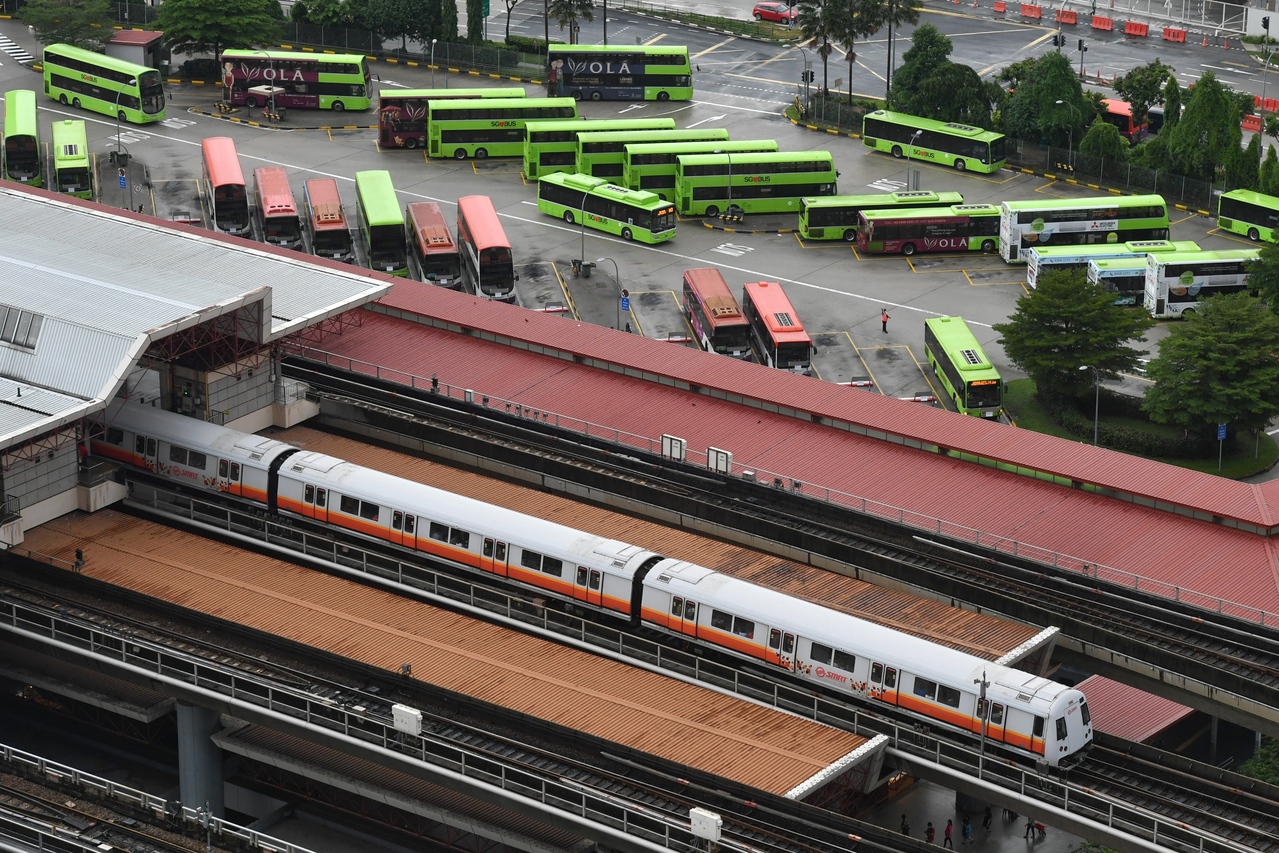Transport sector must be reliable, resilient and future-ready to deal with Covid-19 and climate change: Iswaran
Sign up now: Get ST's newsletters delivered to your inbox

Expounding on the 3Rs, Transport Minister S. Iswaran said reliability is the bedrock of any transport hub or system.
ST PHOTO: CHONG JUN LIANG
Toh Ting Wei
Follow topic:
SINGAPORE - The challenges posed by the Covid-19 pandemic and climate change led to disruptions in supply chains, changes in travel patterns and shifts in technology, said Transport Minister S. Iswaran.
Hence, Singapore's transport system will need to be reliable, resilient and ready for the future, he said on Monday (Sept 20) at a Ministry of Transport (MOT) conference at the Lifelong Learning Institute in Paya Lebar.
Expounding on the 3Rs, he said reliability is the bedrock of any transport hub or system.
Citing the rail sector as an example, he said much work has been done to improve rail reliability. He noted how Singapore set a target of one million mean kilometres between failure for the rail network in 2017, and has met it since 2019.
"We should not take this for granted... I think we need to make sure that we continue to prioritise this work together and sustain this achievement," he said.
On resilience, Mr Iswaran said this was the attribute needed to turn the adversity posed by the Covid-19 pandemic into a source of competitive advantage.
"Our maritime transport sector swiftly adapted processes, and stepped up remote and contactless harbour operations, to keep supply lines intact and our workers safe," he said.
"As a result, Singapore is widely regarded as a catch-up port where shipping lines can make up for delays elsewhere."
He noted that Singapore has remained the top transshipment port in the world. Container throughput is now also above pre-pandemic levels.
Meanwhile, the aviation sector also seized new opportunities despite the border restrictions worldwide, said Mr Iswaran.
For example, the airport improved its efficiency such that it is possible for businesses to book a slot to send air cargo one hour before take-off.
However, as the world emerges from the shadow of the pandemic, it is now vital to take measures to revive Singapore's air hub and restore connectivity, he said, noting: "This is critical to our recovery and our reputation as a trusted international air hub."
On the need to be ready for the future, Mr Iswaran said a key long-term challenge will be posed by climate change.
As an international transport hub, Singapore can lead by example and play a catalytic role in reducing aviation and maritime transport emissions, he said. For example, Singapore can help to lower the emissions of every aircraft and ship that refuels here by providing them with green fuels, when such fuels become commercially viable.
About 150 people, including transport industry leaders and unions, representatives from the public and private sector, as well as MOT staff, attended the hybrid event, which was also held online, to mark 20 years since MOT's formation.

Slug: twmot21 ST Photo: Chong Jun Liang Transport Minister S Iswaran gives a speech during the Ministry of Transport conference on September 20, 2021. Transport Minister S Iswaran will be delivering a speech and giving a doorstop at the MOT Conference
PHOTO: ST
At a separate interview on the sidelines of the event, Mr Iswaran addressed financial sustainability in the public transport system.
Public transport ridership is at about 60 per cent of what it was before the Covid-19 pandemic, he noted.
Asked for the implications of this on the sector's financial sustainability, Mr Iswaran said: "I think we should not be drawing conclusions from what might be happening in a crisis period because this may or may not be indicative of what might be the longer term trajectory."
He said any fare adjustment will depend on the Public Transport Council's annual fare review exercise.
MOT will focus on ensuring that the public transport system remains reliable, and will relook the situation when travel and work patterns stabilise, he added.

